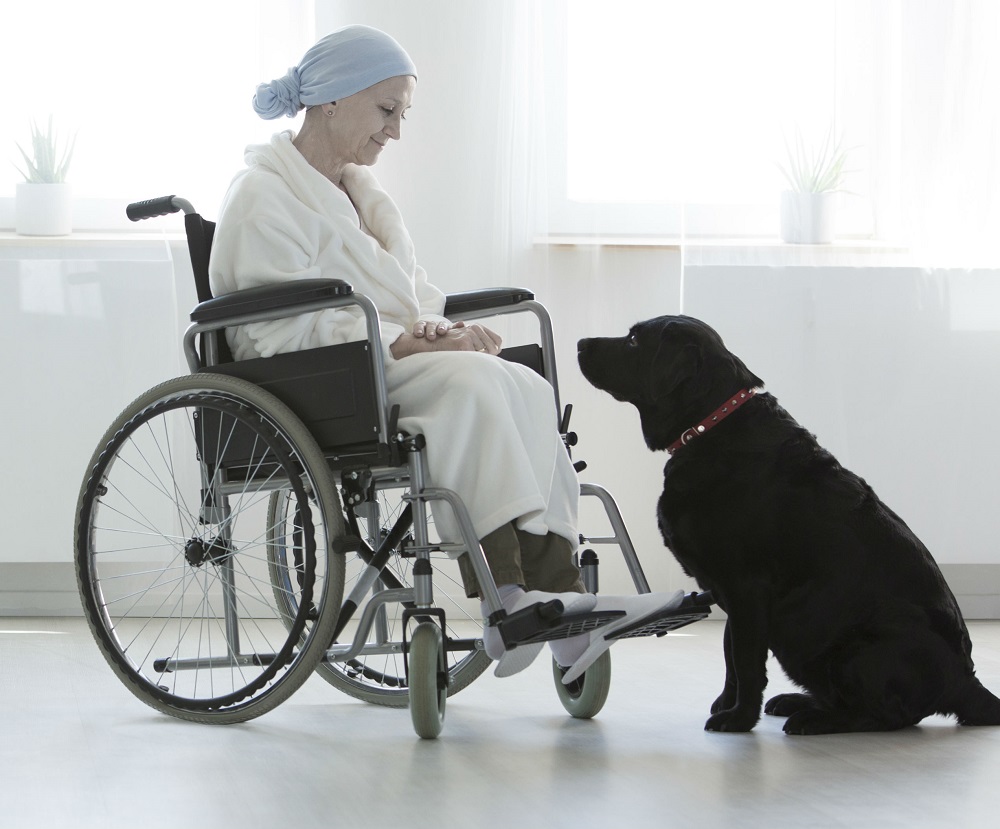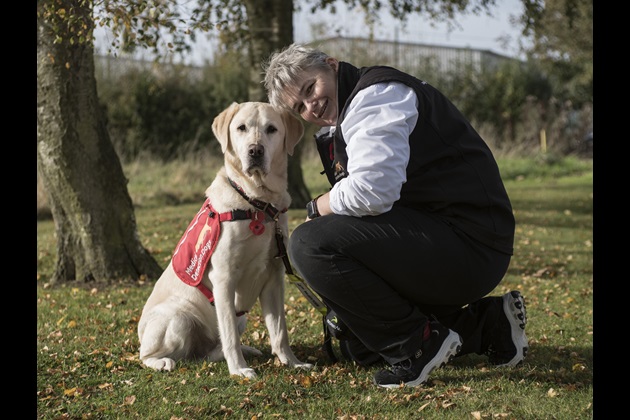For a person who is diabetic, avoiding dangerously low blood sugar levels is a daily problem. Hypoglycaemia can lead to confusion and comas and can be life-threatening.
Claire Pesterfield was a paediatric nurse, but her diabetes would sometimes lead her to have blackouts on the ward. A friend suggested she get a medical alert assistance dog, which can detect when Claire’s sugar levels fluctuate.
He's not just my companion, he's saved my life
Claire’s now been with her dog Magic for over four years. “Magic is trained to alert me to an odour change on my breath that happens when I have high or low glucose levels,” says Claire, who now works for the charity who provided her with Magic, Medical Detection Dogs.
“He’s not just my companion, he’s constantly managing my health. Magic’s saved my life on many occasions and without him, I wouldn’t be alive today.”
Detecting cancer
Because dogs are able to detect tiny odour concentrations, around one part per trillion (the equivalent of one teaspoon of sugar in two Olympic-sized swimming pools), they are potentially able to detect diseases, such as cancer, much earlier than is currently possible with medical tests and equipment. Medical Detection Dogs are pioneering work to help speed up the diagnosis process and impact on thousands of lives.
“We’re carrying out an NHS ethically approved study into the dogs’ ability to detect urological cancers using their sense of smell,” says Claire. “Alongside the urological study we’re doing a trial exploring the ability of dogs to detect malaria and Parkinson’s. In the short term, our dogs could provide additional testing for cancers and other conditions that are currently difficult to diagnose reliably.”
Improving health
It seems that nursing staff are also keen to support animals being used more widely in health care. An RCN survey found that nine out of 10 nurses believe animals can help improve the health of patients with depression and other mental health problems with 60% of respondents also acknowledging that animals can help speed patient recovery.

The survey prompted the publication of a new RCN protocol which provides advice on how hospitals and health care settings can safely introduce dogs.
Amanda Cheesley, RCN Professional Lead for Long-term Conditions and End-of-Life Care, says: “Anyone who’s worked in this area can see the amazing impact animals have on the health of adults and children alike. However there are so many myths around the dangers of having animals in health care settings that most organisations are too concerned to try it out. This protocol gives guidance on the use of dogs in hospitals and other care settings to the benefit of patients.”
Find out more
Download Working With Dogs in Health Care Settings.
Visit Medical Detection Dogs to find out more about the charity Claire works for.








